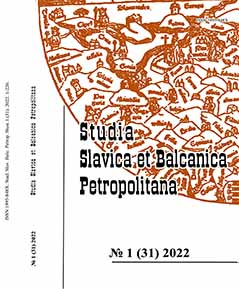Византия после Византии? Форум
Byzantium after Byzantium? Forum
Author(s): Dmitrii M. Bulanin, Mikhail Vladimirovich Dmitriev, Oleg Ivanovitch Dziarnovich, Andrey Vitalyevich Korenevsky, Konstantin Kostromin, Tatiana Viktorovna Kushch, Dmitry Igorevich Polyvyannyy, Russell Martin, Rustam Mukhammadovich ShukurovSubject(s): History, Cultural history, Ethnohistory, History of ideas, Middle Ages
Published by: Издательство Исторического факультета СПбГУ
Keywords: Byzantium; Byzantine Commonwealth; Balkans; Ancient Russia; Serbia; Bulgaria; Greece; Ottoman Empire; Russian Orthodox Church;
Summary/Abstract: The Byzantine Empire has existed longer than all the empires that were on Earth — more than 1000 years. She created the «Byzantine Commonwealth» of countries (D. D. Obolensky’s term), stretching from the South Baltic to the Mediterranean and from the Adriatic Sea to the Caucasus Mountains. The Commonwealth countries had religious and cultural unity, a close political culture and a similar tragic fate. All of them fell victim to foreign conquest, from the Mongols to the Ottomans, and with great difficulty, centuries later, regained their sovereignty. With the death of the Byzantine Empire in 1453, its historical role did not stop. Byzantium remained a relevant historical actor for a long time, as an ideal and as a symbol, as a heritage and as a hope for the revival of its former greatness. It is not for nothing that the ideas of «lasting Rome», «New Constantinople», etc., were so popular. According to the Romanian historian Nicolae Iorga, the time of «Byzantium after Byzantium» has come, which continues to this day. In the article, historians, specialists in the history of Byzantium, consider the following questions: 1) What is «Byzantium after Byzantium»? Is it an symbolic image, is it a historical memory of a bygone empire, is it a political, spiritual, cultural ideal? Or is it a fictitious concept, Byzantium died in 1453? 2) How long did «Byzantium after Byzantium» exist? What is the chronological depth of Byzantine influence in the Balkans, in Eastern Europe? 3) There is a point of view about the «unfavorable heritage» of Byzantium — all countries belonging to the «Byzantine Commonwealth» have a difficult historical fate. Is this a fatal coincidence, or the negative influence of the «Byzantine heritage»? 4) Did Byzantium have a successor (cultural, political, spiritual)? To what extent can they consider Russia, the Balkan states?
Journal: Петербургские славянские и балканские исследования
- Issue Year: 2022
- Issue No: 1(31)
- Page Range: 3-35
- Page Count: 33
- Language: Russian

